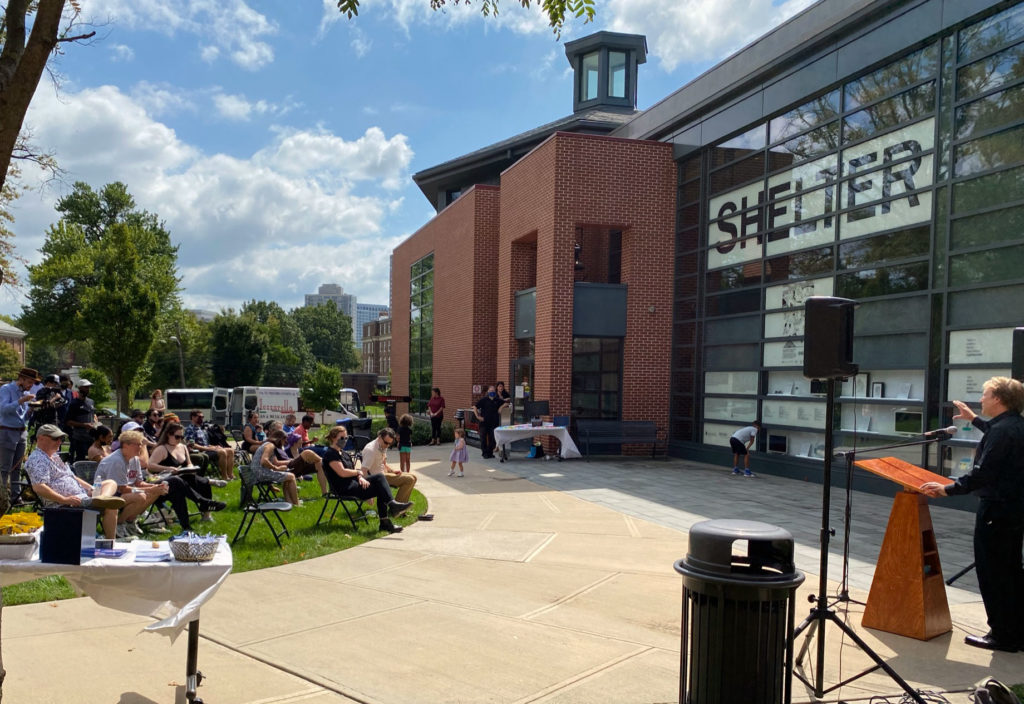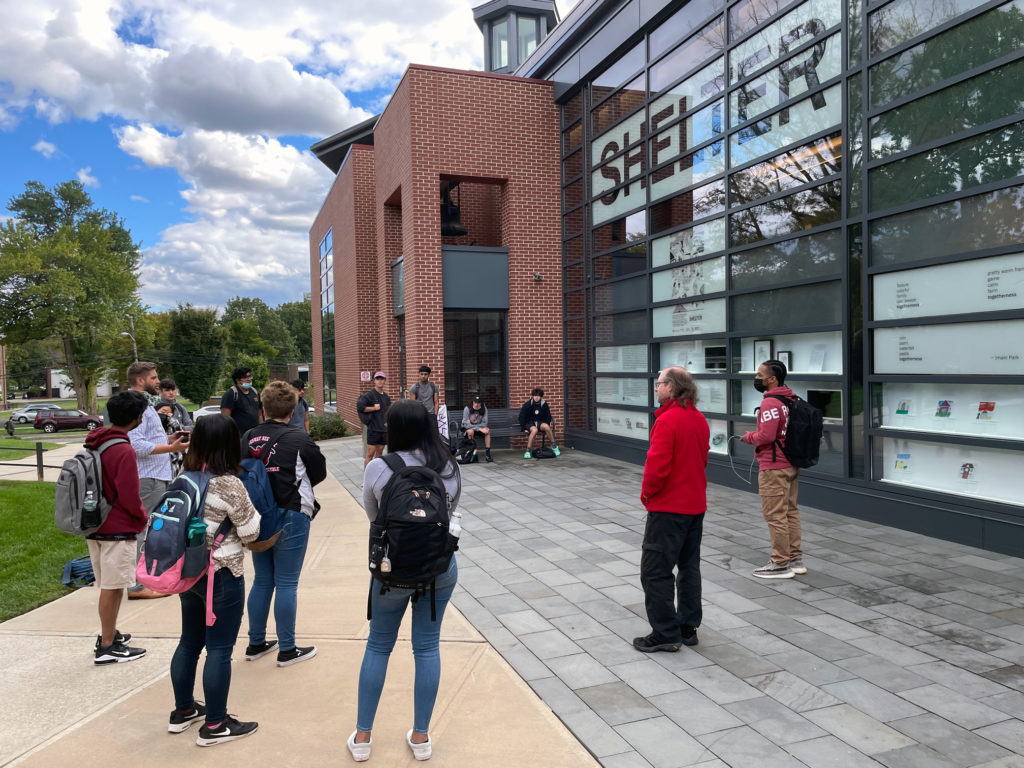Podcast and Art Installation Bring SHELTER Project to the Public and the Classroom
October 13, 2021
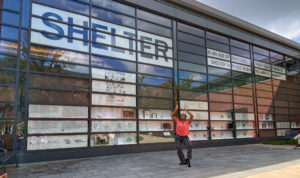
How can we hear from and help people in our community who face housing insecurity? A new podcast asks us to listen in and consider what how religious and academic institutions might get involved to address the growing problem of houselessness and the social problems that leave so many without shelter.
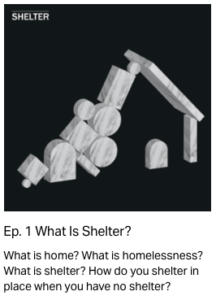
The SHELTER podcast is an intervention that grew out of an emergency aid and public humanities collaboration between New Brunswick Theological Seminary, Rutgers University, coLAB Arts New Brunswick, and the Reformed Church of Highland Park-Affordable Housing Corporation, made possible by the generous funding of the Henry Luce Foundation.
The podcast was designed for general listeners and students, as an introduction to housing insecurities in a time of pandemic and the role academic and religious institutions can play in partnering with the community to find solutions. The first episode is available at ShelterNJ.org or wherever you get your podcasts. It is produced by award-winning radio journalist Scott Gurian and narrated by Gurian and Diana Molina. It was developed and edited by SHELTER project co-directors Nathan Jérémie-Brink (NBTS), Daniel Swern (coLAB Arts), Kristin O’Brassill-Kulfan (Rutgers, History Department), and Colin Jager (Rutgers, English Department and Center for Cultural Analysis). It features community producers who include both NBTS and Rutgers students, as well as community members who have experienced housing insecurity.
To promote community engagement the SHELTER Project also created a large-scale art installation that exhibited the initial interpretive works drawn from the direct service and participant oral histories. The multi-media installation takes up an entire side of the seminary building that faces both the main courtyard of the seminary and the central quad of the university, and is on display throughout the Fall semester, through December 2021. Courses taught by New Brunswick Theological Seminary and Rutgers University faculty have featured the installation as a way to engage with the stories of people in our community facing housing insecurity, and to c0nsider how religious and academic institutions might respond.
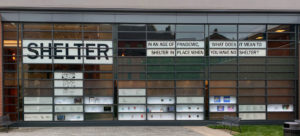
Both the podcast and the public art installation are rooted in direct aid and a desire to preserve the experiences of our neighbors. At the height of the pandemic, the Henry Luce Foundation gave New Brunswick Theological Seminary an Urgent Needs Grant of $150,000 through their Theology and Religion program. The seminary passed most of that money on to the Reformed Church of Highland Park Affordable Housing Corporation to provide direct financial assistance to more than 120 people. The grant helped 32 households secure housing and assisted some recipients with case management support, including legal and social services related to domestic violence, early release from prison, and immigration.
The project’s lingering question was: In an age of pandemic, what does it mean to shelter in place when you have no shelter? Historians on the project worked with students and non-profit case managers to preserve the experiences of housing-insecure members of our community through oral histories, and local artists interpreted complex stories of struggle and resilience through various media including poetry, drawing, painting, theater, and movement.
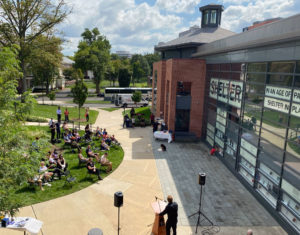
The public art installation displaying these interpretive works opened on September 18, 2021. In addition to the project co-directors, Rev. Seth Kaper-Dale, director of the Affordable Housing Corporation spoke about ongoing community needs and underlying causes housing insecurity. He stressed advocacy for structural change and direct aid interventions. Faculty, staff, and students of NBTS and Rutgers, community partners, and families came out to support the launch of the exhibition. The event also featured live performances based on the oral histories of participants who received housing through the grant.
The SHELTER podcast, the project website’s annotated transcriptions of participants, and exhibit materials will continue to be featured in courses at both NBTS and Rutgers, promoting student consideration of these important issues. A Rutgers course on Homelessness and Unhoused Populations in US History taught by O’Brassill-Kulfan drew a hundred students, who have been exploring the oral histories and other content generated through the SHELTER Project to help them understand local contemporary dimensions of poverty and housing insecurity. In addition to these interventions, on lasting artistic contribution of the project will feature a mural on a large public facing wall on Raritan Avenue/Route 27 in Highland Park. Feel free to explore more at ShelterNJ.org.
